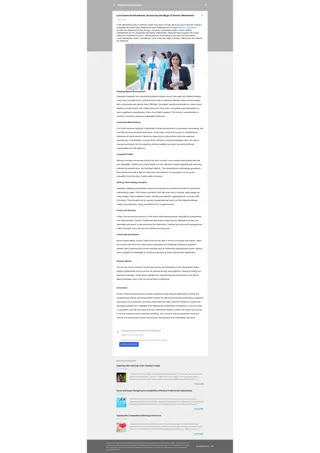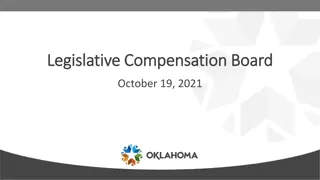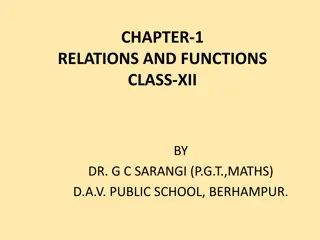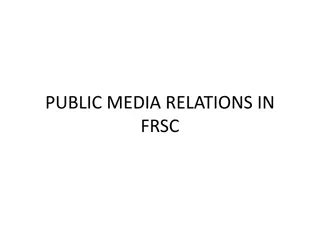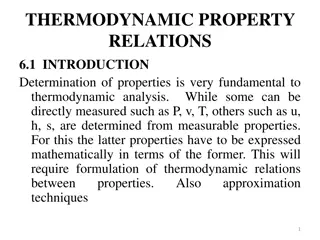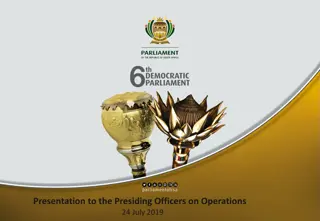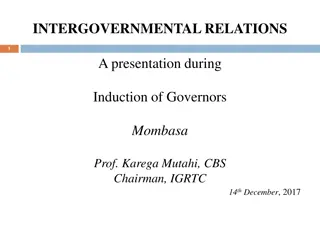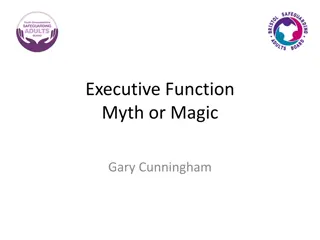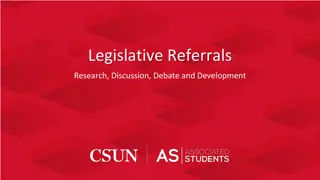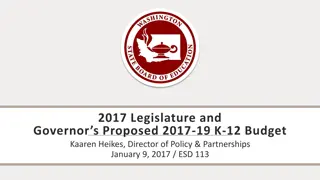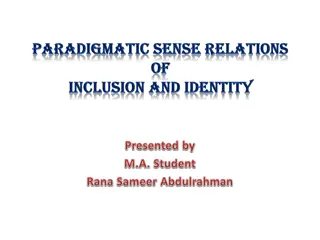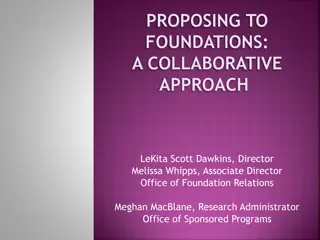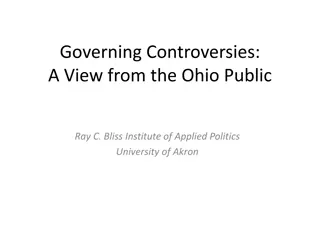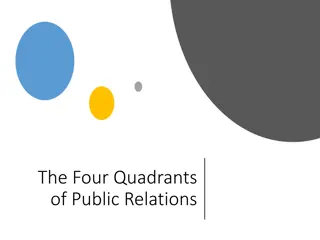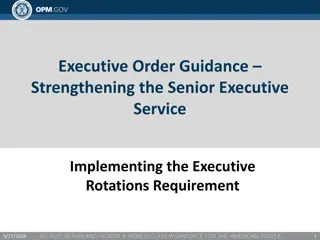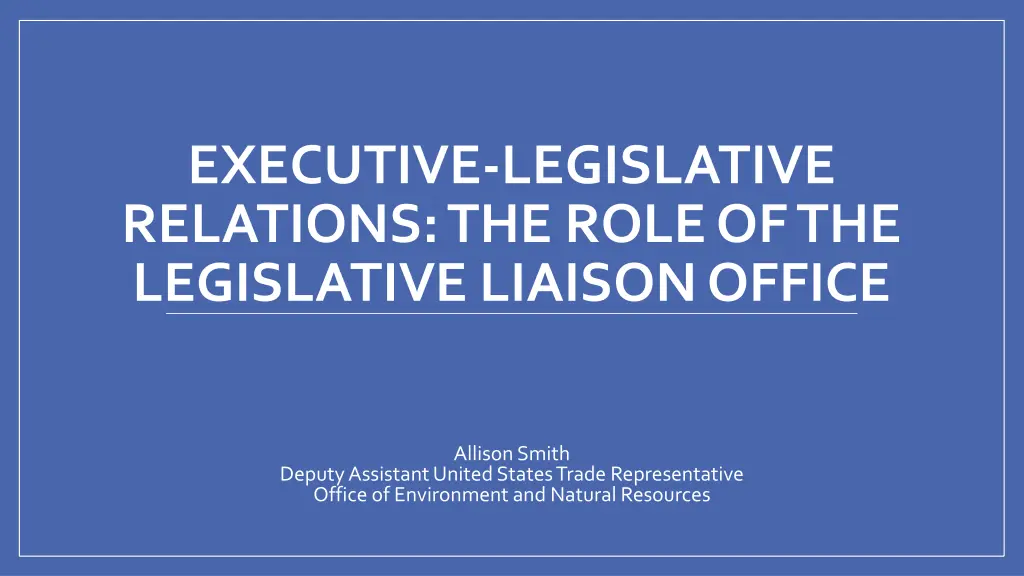
Understanding the Role of Legislative Liaison Office in Government Relations
Explore the crucial role of the Legislative Liaison Office in advancing agency priorities through direct engagement with Congress. Learn how the office handles communication, oversight requests, testimony preparation, and more to support effective government relations.
Download Presentation

Please find below an Image/Link to download the presentation.
The content on the website is provided AS IS for your information and personal use only. It may not be sold, licensed, or shared on other websites without obtaining consent from the author. If you encounter any issues during the download, it is possible that the publisher has removed the file from their server.
You are allowed to download the files provided on this website for personal or commercial use, subject to the condition that they are used lawfully. All files are the property of their respective owners.
The content on the website is provided AS IS for your information and personal use only. It may not be sold, licensed, or shared on other websites without obtaining consent from the author.
E N D
Presentation Transcript
EXECUTIVE-LEGISLATIVE RELATIONS: THE ROLE OF THE LEGISLATIVE LIAISON OFFICE Allison Smith Deputy Assistant United States Trade Representative Office of Environment and Natural Resources
AGENDA Introduction Basics of the Legislative Liaison Office (hereinafter called Office of Congressional Affairs ) How the Office of Congressional Affairs Advances the Agency s Agenda The Proactive Agenda Playing Defense Putting It All Together How Can You Help Congressional Affairs Help the Agency (and Congress?) Q&A
Introduction Currently serve in the Office of the United States Trade Representative as a Deputy Assistant USTR for Environment and Natural Resources From 2021-2023 served as the Deputy Assistant USTR for Congressional Affairs in USTR s Front Office From 2013-2021, served on Capitol Hill, namely as the Deputy Chief of Staff and Counsel for Rep. Suzanne Bonamici (D-OR)
Basics of the Legislative Liaison Office The primary goal of the Legislative Liaison, or Congressional Affairs Office, is to advance the Agency and Administration s priorities through direct engagement with Congress The Office of Congressional Affairs (OCA) will vary in size and makeup depending on the size of the agency OCA can include a mix of political appointees and career staff, with a variety of backgrounds Any and all engagement between the Agency and Congress (including members and staff) should be directed by and flow through OCA
Any and all engagement An Explainer Receive and respond to letters and questions from Members of Congress and their staff Receive and respond to oversight requests Prepare Principals to testify at congressional hearings and respond to Questions for the Record Prepare Administration staff to provide briefings to Congress Advance the Administration s legislative and funding priorities Inform Members of Congress about activities in their district/state Organize technical assistance on draft legislation Get nominees confirmed by the Senate Attend meetings with Members of Congress and Principal/staff Help you communicate effectively with Congress
How the Office of Congressional Affairs Advances the Agency s Agenda The Proactive Agenda Each agency has a mandate for their work and jurisdiction For instance, at USTR, we negotiate directly with foreign governments to create trade agreements, to resolve disputes, and to participate in global trade policy organizations. We also meet with governments, with business groups, with legislators and with public interest groups to gather input on trade issues and to discuss the President's trade policy positions. Each Administration and Principal guides the Agency s work through their priorities. For example, at USTR, President Biden and Amb. Tai have prioritized a number of new trade engagements. OCA is responsible for producing and implementing the strategy to advance Amb. Tai s agenda on Capitol Hill
Playing Defense OCA is the first line of defense for the Agency when there is a problem on Capitol Hill Problems can include (but are not limited to!): Budget and funding issues Opposition to the aforementioned proactive agenda District/state specific problems related to your Agency s work Other When problems arise, OCA will take the lead on an appropriate response, including scheduling meetings for the Principal and Member of Congress, or their respective staffs, responding to letters, responding to requests to testify, providing budget justifications, or providing district/state specific information for members
Putting It All TogetherTestifying on the Hill One of the most important recurring events for OCA is when the Principal, or another member of the Agency leadership, testifies on the Hill Typically the Principal will testify annually before their House and Senate Committees of jurisdictions They may also testify before their House and Senate Appropriations Committees Additionally, other Agency principals and leadership may be called to testify
OCA Prep for Hill Testimony Preparation begins weeks or months in advance Includes preparation of briefing materials for the Principal, including drafting opening statements and preparing Q&A Meetings with Agency staff and leadership to discuss strategy Fulfilling last minute requests from Members of Congress and staff to provide information Staffing the Principal at the hearing Managing the QFR process and all follow up
How You Can Help Congressional Affairs Help the Agency (and Congress?) OCA will proactively ask you for inputs into Congressional engagement, including providing information and talking points for meetings with Members of Congress and their staff, briefing committee and personal office staff, drafting or editing letters to Members of Congress, and providing draft answers to questions for the record At USTR, staff briefings occur in person on Capitol Hill, via videoconference, and in person at our negotiating rounds, which are always attended by Congressional staff, or even Members of Congress Being able to synthesize and explain information for OCA is critical to supporting open and clear lines of communication with Capitol Hill
Best Practices for OCA Engagement Build a relationship with your OCA colleagues Ask them what information is most helpful, and if your OCA staff are new or your OCA office does not include career staff from Administration to Administration, inform OCA about past engagements with the Hill Proactively inform them of major milestones and important events in your issue areas Ensure all engagement with the Hill is channeled through OCA Facilitate clear communication of your issues areas in ways that are easily understood by Members of Congress and congressional staff Understand all deadlines, both internal from OCA and from Capitol Hill You can also be their eyes and ears, particularly at meetings with trade associations or stakeholder engagements where Members of Congress and Congressional staff may be in attendance
Questions? Contact Information: Allison Smith Deputy Assistant USTR for Environment and Natural Resources Allison.W.Smith@ustr.eop.gov


